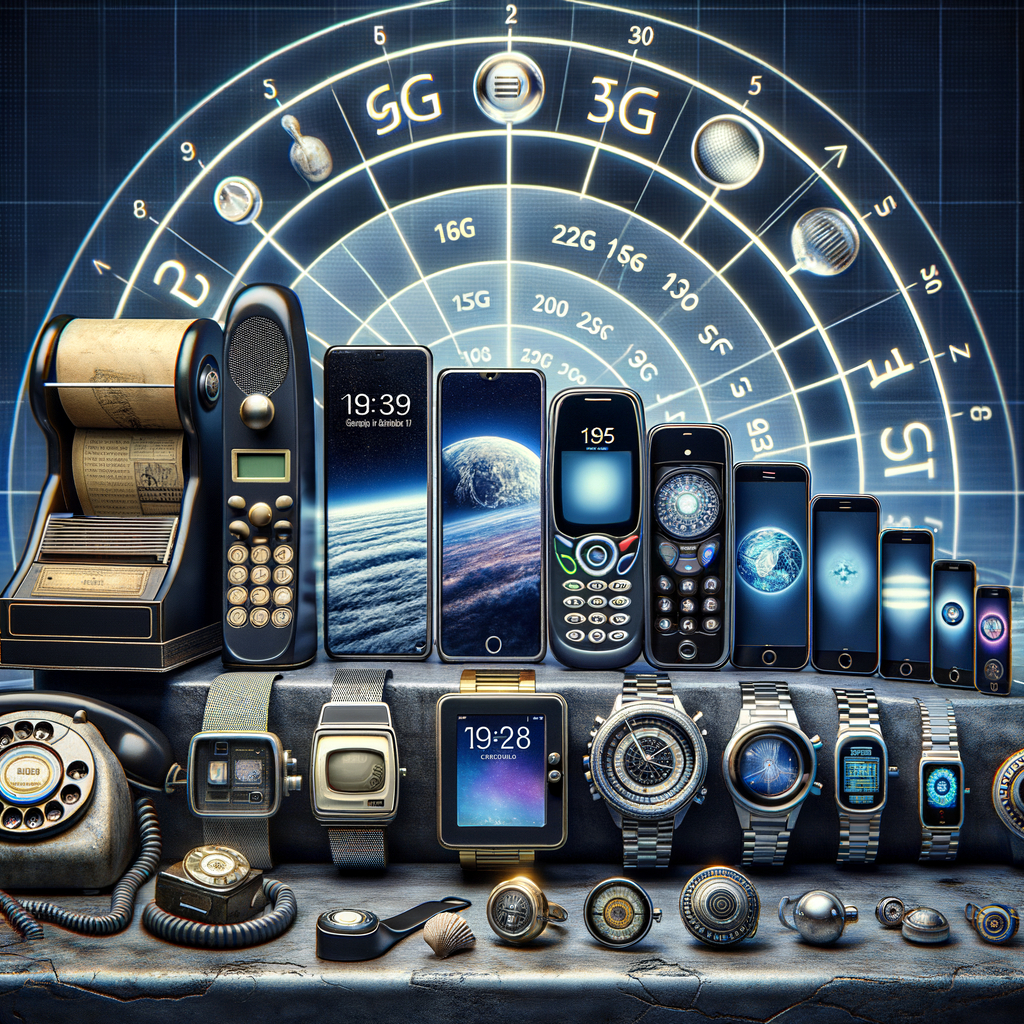Physical Address
304 North Cardinal St.
Dorchester Center, MA 02124
Physical Address
304 North Cardinal St.
Dorchester Center, MA 02124

Mobile technology has drastically evolved over the past few decades, from large brick-sized devices to sleek, pocket-friendly smartphones. This article will delve into the fascinating evolution of mobile technology, exploring its origins and tracing its development through various stages.
The history of mobile phones began in 1973 when Martin Cooper, a Motorola executive, made the first call from a mobile phone. The device was far from portable by today’s standards; it weighed about 1.1 kilograms and measured 23 centimetres long. Despite its size and weight, this groundbreaking invention marked the beginning of an era that would revolutionise communication.
In the early 1980s, the first generation of cellular technology (1G) was introduced. These analogue phones were primarily used for voice calls and had very limited coverage areas known as ‘cells’. Each cell had a central tower capable of communicating with mobile phones within its range.
By the early 1990s, digital signals replaced analogue ones, leading to the second generation (2G) of mobile technology. This new era brought about significant improvements such as better sound quality and increased capacity. More importantly, it introduced SMS (Short Message Service), allowing people to send text messages for the first time.
At the turn of the millennium came 3G technology which provided faster data-transmission speeds enabling services like video calling and mobile internet access. This advancement significantly transformed how people used their phones – shifting from primarily voice-based communication to multimedia usage including music streaming, video content and more.
With the advent of 4G in the late 2000s, mobile communication took another leap forward. Offering even faster data transmission rates, 4G made high-definition video streaming and gaming on mobile devices possible. It also paved the way for apps that required real-time data transmission, such as GPS navigation and ride-sharing services.
Today, we stand at the cusp of a new era with the emergence of 5G technology. Promising unprecedented speed and lower latency, 5G is set to revolutionise not just mobile communication but also areas like IoT (Internet of Things), autonomous vehicles and remote surgeries.
Parallel to these generational shifts in network technology was the evolution of the mobile device itself. The introduction of smartphones marked a significant milestone in this journey. In 2007, Apple launched its first iPhone, which combined a phone, an iPod and an Internet device into one product. This launch sparked a smartphone revolution that continues to this day.
The rise of smartphones led to another significant development – the app ecosystem. With Apple’s App Store and Google’s Play Store, developers could create applications for various purposes – from games and entertainment to productivity tools – transforming smartphones into multi-functional devices.
As we look ahead, it’s clear that mobile technology will continue to evolve at a rapid pace. Concepts like foldable phones and augmented reality are already becoming mainstream while advancements like AI integration promise to make our devices smarter than ever before.
In essence, mobile technology has come a long way since its humble beginnings. From bulky handheld devices used for basic voice calls to sleek smartphones capable of performing myriad tasks – it has been a journey of remarkable transformation. As we stand on the threshold of exciting new advancements, one can only wonder what the future holds for this ever-evolving technology.